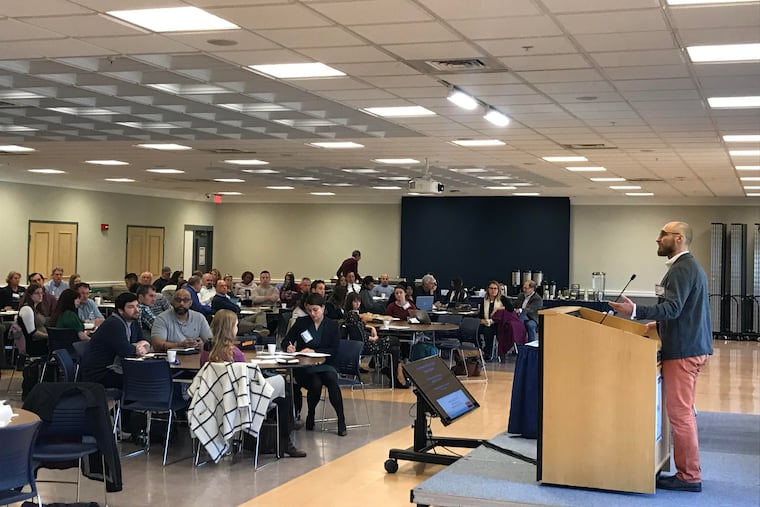Pennsylvania criminalizes accidental overdoses to the detriment of its people | Opinion
Pennsylvania has tried to punish its way out the opioid crisis, but we know that won't work.

In the last two decades, more than 700,000 people have died of a drug overdose in the United States. Some states are beginning to turn the tide on this staggering loss of life — in 2018, Pennsylvania experienced an encouraging 18% decline in fatal overdoses. Even so, nearly 4,500 people died in a state that has been among the hardest hit in our national overdose crisis.
Pennsylvania, along with other states, has pursued a variety of strategies to respond to this crisis. Many of the commonwealth’s efforts — including removing barriers to medication-assisted treatment and expanding naloxone distribution — are grounded in an evidence-based public health approach. In October of this year, the Opioid Command Center Summit highlighted the state’s dedication to “all hands on deck” coordination across agencies and stakeholders to address overdose.
Charging people with “drug delivery resulting in death” (DDRD) is another type of strategy, but rather than promoting public health, it is based on failed policies of the past and the erroneous belief that we can punish our way out of the overdose crisis.
Along with around 20 other states, Pennsylvania law treats accidental overdoses as a form of criminal homicide. What does that mean? It means that a friend or family member who shares drugs with someone who ends up fatally overdosing can face a first-degree felony and up to 40 years of prison time. It doesn’t matter if the person was unaware of the drug’s lethality, that they may have called 911 for help, or even if they overdosed themselves — they can still be prosecuted.
In 2016, Glenn Perella administered naloxone to reverse his girlfriend’s overdose, called 911, and remained at her side as he waited for help to arrive. Nevertheless, he was charged with drug delivery resulting in death in Allegheny County. He ultimately took a negotiated guilty plea of involuntary manslaughter and received a sentence of up to 23 months in prison followed by five years of probation.
Pennsylvania leads the nation in the use of this misguided and counterproductive approach, based on analysis from the Health in Justice Action Lab (at the Northeastern University School of Law) and data aggregation initiative Mission LISA. Despite a lack of evidence that these kinds of prosecutions curb drug use or overdose, DDRD charges increased by 1,267% statewide between 2013 and 2017. Although the law is ostensibly intended to target high-level dealers as a way of deterring drug sales and promoting public safety, the reality is that it is more likely to deter someone from calling for help to save a life because they fear draconian criminal repercussions.
Last month, over 100 Pennsylvania criminal defense lawyers came together at Penn State Harrisburg for training on how to effectively represent individuals charged with drug delivery resulting in death. Cosponsored by the National Association of Criminal Defense Lawyers, the Public Defender Association of Pennsylvania, the Penn State Harrisburg Douglas W. Pollock Center for Addiction Outreach and Research, and the Health in Justice Action Lab, the event opened with remarks by State Rep. Sara Innamorato (D., Allegheny) and included presentations from leading medical professionals, public defenders, and harm-reduction advocates. The different sessions highlighted how defense attorneys can be a critical ally in conversations about how to improve policy responses to overdose within the criminal justice system.
Perhaps the most important lesson of the November event? Drug overdoses are a public health emergency that urgently requires the humane and evidence-based approaches that we already know work — continuing the failed “lock ‘em up” policies of the past several decades will only deepen the tragedy of preventable overdose deaths.
A first of its kind in Pennsylvania, the training was supported by Vital Strategies, a global health organization working across sectors and communities to reduce overdose in the state of Pennsylvania, with funding from Bloomberg Philanthropies.
This collaborative work is grounded in a public health approach and the perspective that help and support, rather than punishment and stigma, will reduce overdose and other negative health and social consequences of drug use.
George Newman is a Pennsylvania attorney with over 44 years of experience in defending those charged with large-scale and small drug cases, including drug delivery resulting in death cases.